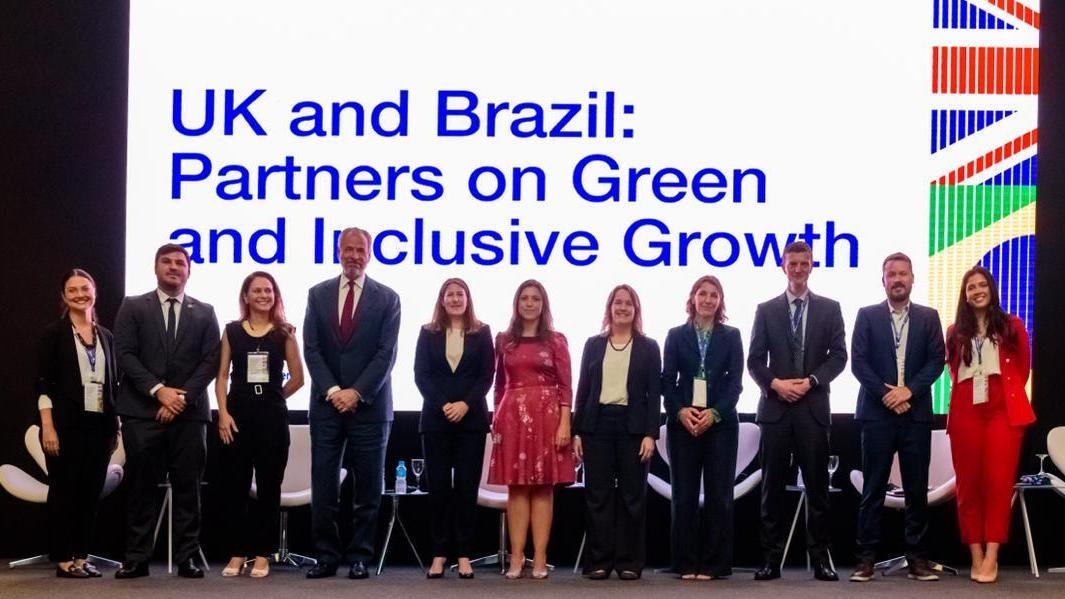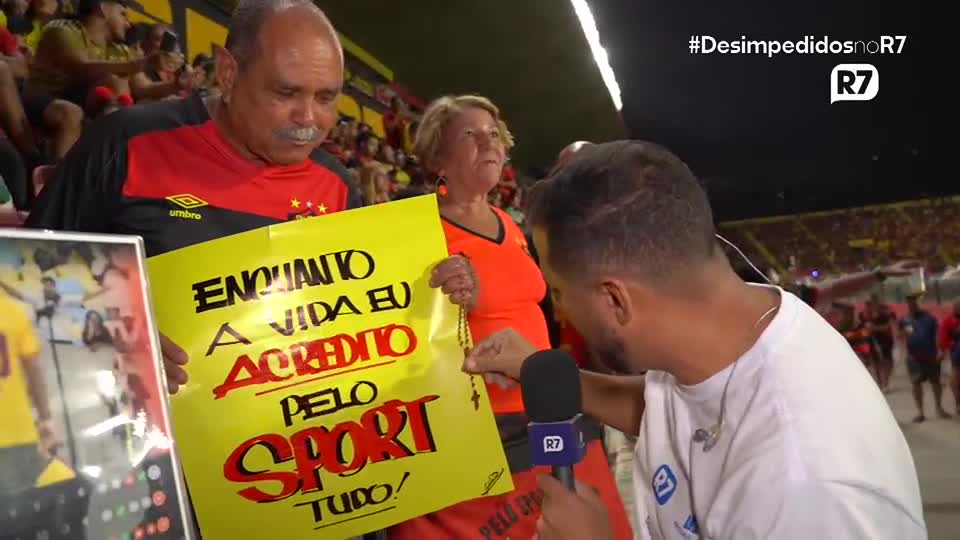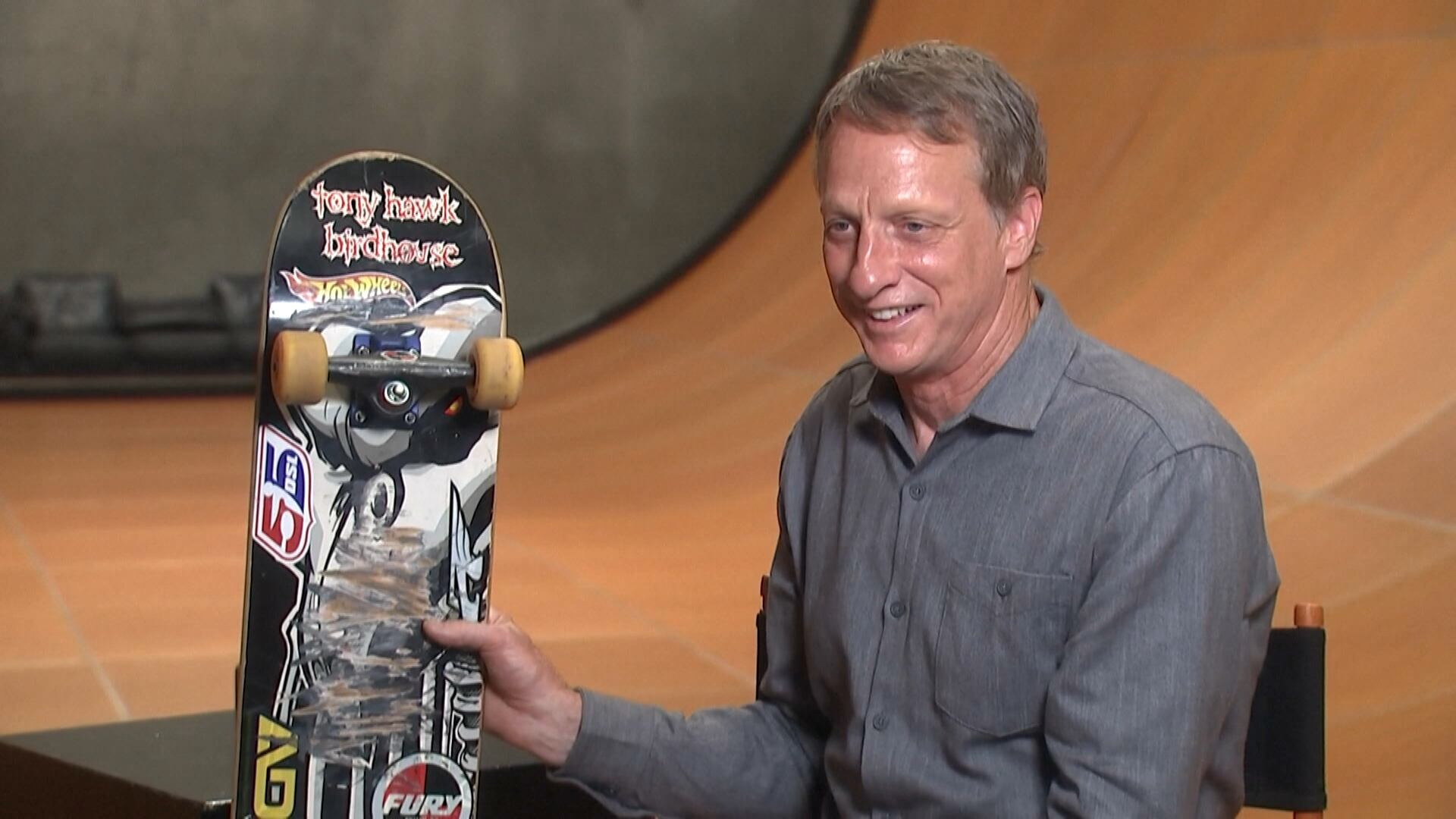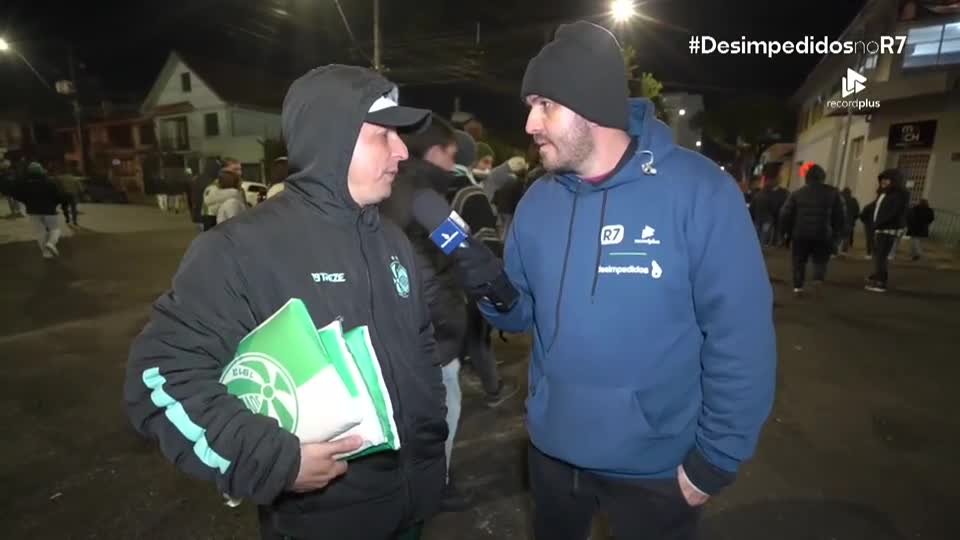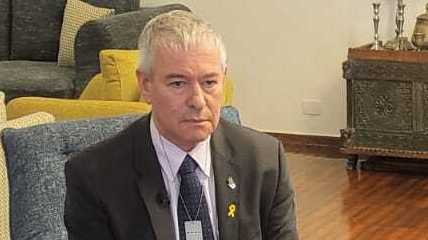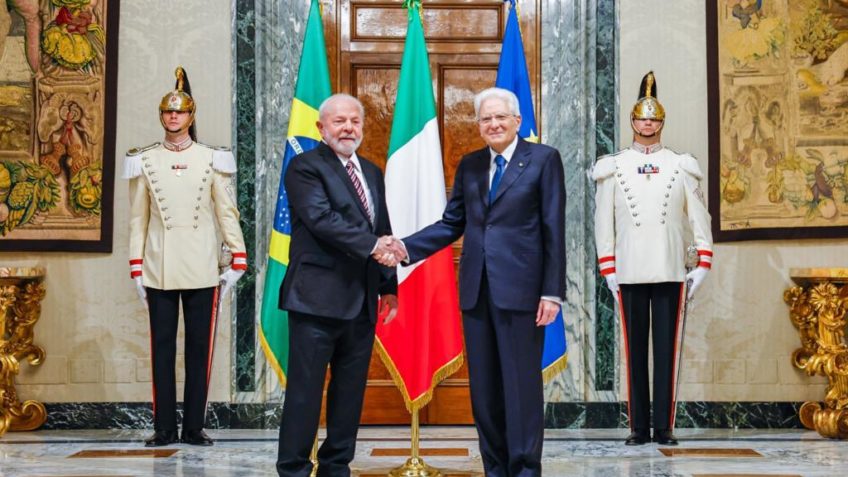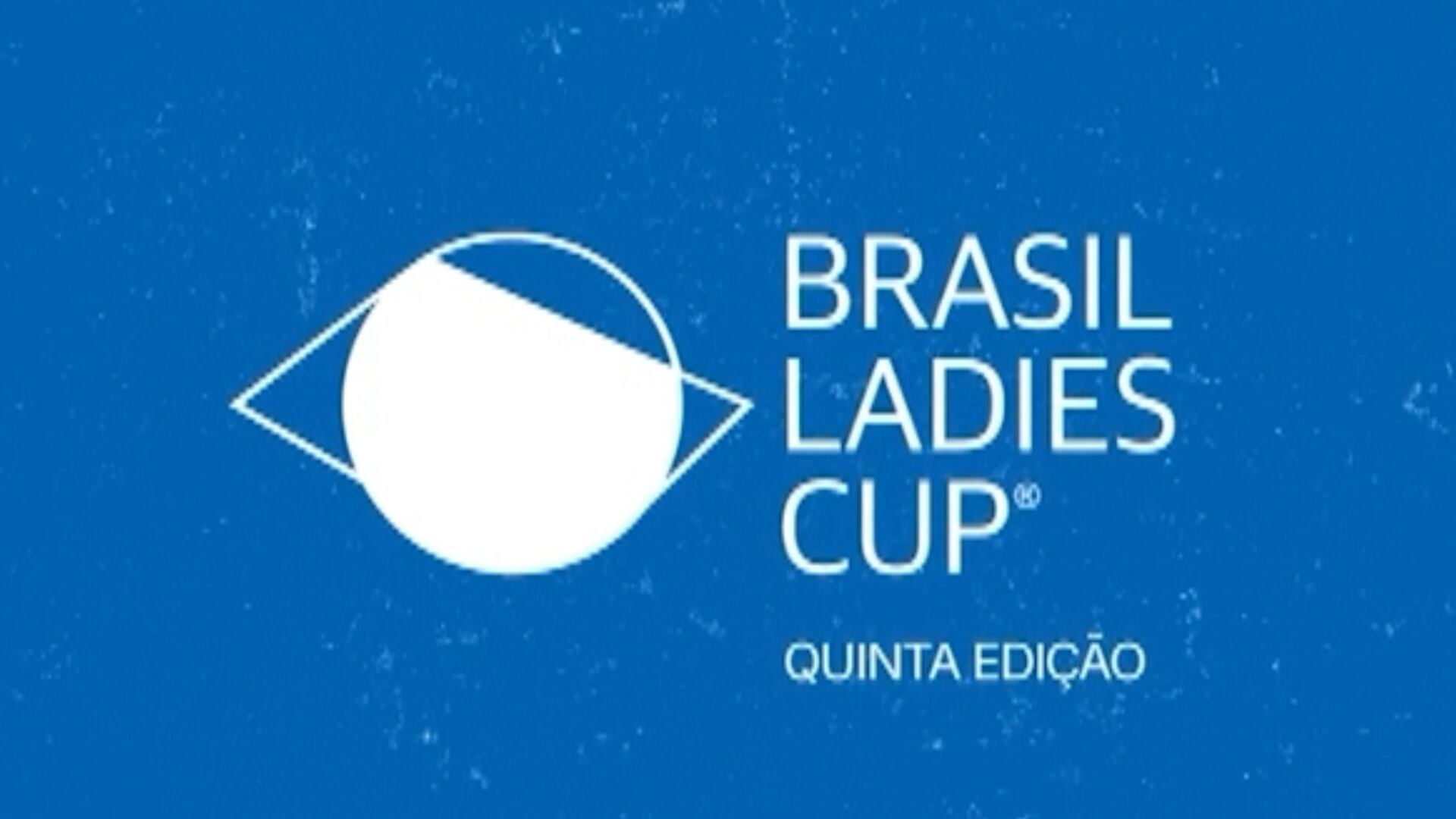BBCcom_Content_Index_for_January_30_2018.txt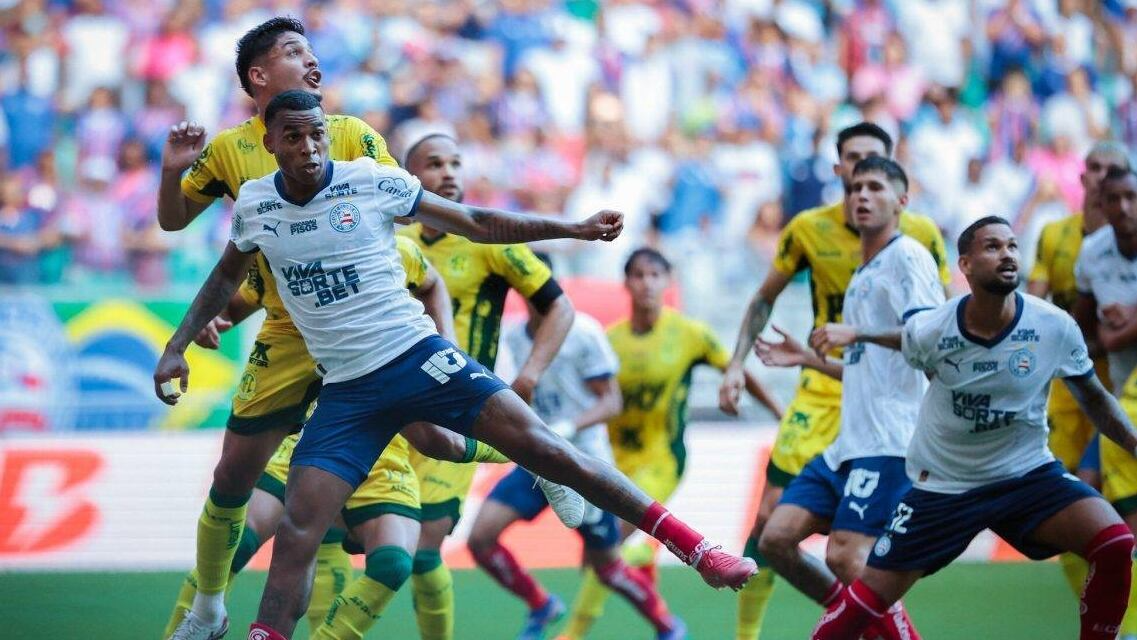
Rela??o de CEOs com diferentes públicos deve ser clara e transparente Revista Comunica??o Corporativa Valor Econ?mico.txt
Denise Santos,??odeCEOscomdiferentespúblicosdeveserclaraetransparenteRevistaComunica??oCorporativaValorEcon?ultimo resultado da quina 2010 CEO da Beneficência Portuguesa do Brasil: “é importante para nós, como embaixadores de gest?o da reputa??o da empresa, de seus valores, termos a maior transparência possível com todos os stakeholders.” — Foto: Fernando Cavalcanti/ Divulga??o Ativista da companhia, embaixador da gest?o e da reputa??o e agente de diálogo s?o alguns papéis que chief executive officers (CEOs) passaram a desempenhar no dia a dia. Elas e eles est?o hoje em pra?a pública, expostos à mídia e às redes sociais. Precisam se comunicar de forma transparente com os vários públicos de interesse da companhia, que, por sua vez, também querem ser ouvidos. Estabelecer diálogos é hoje uma tarefa estratégica que caminha de m?os dadas com os resultados da empresa – cada vez mais sensíveis à reputa??o da marca. Discurso e prática precisam estar alinhados. Valores e propósitos devem realmente pautar os negócios. E, para isso, s?o necessárias mensagens claras e coerentes. window._taboola = window._taboola || []; _taboola.push({ mode: 'organic-thumbs-feed-01-stream', container: 'taboola-mid-article-saiba-mais', placement: 'Mid Article Saiba Mais', target_type: 'mix' }); Essas foram algumas das coloca??es feitas em mesa-redonda com quatro CEOs de companhias que trocaram ideias sobre as perspectivas da comunica??o corporativa. A inciativa é parte de uma parceria do Valor e da Associa??o Brasileira de Comunica??o Empresarial (Aberje) que completa 16 anos. Participaram do debate: Denise Santos, CEO da Beneficência Portuguesa do Brasil; Heloisa Rios, CEO da Universidade do Futebol; Gilberto Costa, diretor-executivo do Pacto de Equidade Racial; e Julio Campos, CEO do Compra Agora. Veja a seguir os principais trechos. Hamilton dos Santos – Os CEOS s?o cada vez mais exigidos. Antigamente, o importante era só prestar contas aos investidores ou a um único stakeholder. Agora, eles s?o instados a falar e, como dizem os americanos, irem para a pra?a pública, que nunca esteve t?o degradada e perigosa. Pe?o que cada um se apresente um pouco, fale do momento atual da sua organiza??o, perspectivas e sobre o maior desafio de comunica??o. Denise Santos – Sou CEO da Beneficência Portuguesa de S?o Paulo há dez anos. Tenho quase 15 anos no setor de saúde e nunca vivi momentos como os atuais, após uma pandemia e processos de gest?o de comunica??o para coordenar de forma simultanea. O papel de CEO é um ato de cidadania, de preocupa??o com sustentabilidade, do negócio, de responsabilidade com a sociedade e com os que est?o juntos nessa jornada. O mundo vive um caos em comunica??o: sai de uma pandemia, come?a uma guerra, outra guerra come?a. Na saúde, passamos por uma reinven??o. No pós-pandemia, houve um aumento de frequência no sistema de saúde, seja público ou privado, que n?o está preparado, com uma equa??o de equilíbrio econ?mico-financeiro versus qualidade que precisa ser repensada. é importante para nós, como embaixadores de gest?o da reputa??o da empresa, de seus valores, termos a maior transparência possível com todos os stakeholders. Hamilton dos Santos, diretor-executivo da Aberje: “Antes, o importante era prestar contas aos investidores ou a um único stakeholder. Agora, o CEO é instado a falar e, como dizem os americanos, ir para a pra?a pública.” — Foto: Divulga??o Júlio Campos – Sou CEO do Compra Agora, um marketplace com investimento da Unilever, na América Latina. Como marketplace, temos a responsabilidade de unir a indústria, que faz a manufatura, e o distribuidor, que entrega nos pontos de venda, sendo um sincronizador entre indústria, distribuidor e pequeno varejo. Hoje, o CEO é um ativista da companhia e o maior desafio é estabelecer diálogo e se comunicar. Nossa empresa é construída em dois pilares: performance e propósito. Agir como agente de diálogo e comunica??o é o meu maior desafio, t?o importante quanto entregar resultados. Quando construímos o propósito da companhia, nos posicionamos no mercado e reduzimos a polariza??o. Gilberto Costa – Trabalho no mercado financeiro há 36 anos, recentemente como diretor de opera??es para América Latina do private banking de um grande banco americano [JP Morgan]. Também sou diretor-executivo do Pacto de Promo??o da Equidade Racial, organiza??o do terceiro setor, da qual sou cofundador, que visa trabalhar a equidade racial na sociedade brasileira, por meio de ESG [práticas ambientais, sociais e de governan?a] racial. Os CEOs s?o como grandes embaixadores das organiza??es. Precisam ser muito vocais em rela??o à quest?o da empresa, do propósito; ter ades?o à cidadania; trabalhar em rela??o ao ESG e em rela??o ao S do ESG, que na sociedade brasileira cruza com a desigualdade racial. O desafio na nossa sociedade é a conex?o entre a agenda de negócios e a de sustentabilidade. Durante muito tempo criou-se uma vis?o de que as agendas eram dicot?micas, n?o andavam juntas. Já comprovamos com várias iniciativas – Pacto Global da Organiza??o das Na??es Unidas, Mover, Pacto da Equidade Racial e Iniciativa Empresarial pela Equidade Racial – que negócio, sustentabilidade, diversidade e inclus?o andam juntos, n?o s?o dicot?micos. O CEO, ao se pronunciar, está direcionando como a companhia pensa, e a sociedade olha isso com carinho. Atualmente, a pra?a pública é virtual. As pra?as públicas a que os CEOs est?o expostos s?o mídia, LinkedIn, Facebook, Instagram. Heloisa Rios – Fui executiva em grandes empresas, na Tetra Pak fiquei 15 anos. Na volta para o Brasil, em 2015, come?aram as consultorias de estratégia para esporte, saúde, agronegócio. Em 2018, já conhecia a Universidade do Futebol, que fez 20 anos em 2023. A Universidade é um hub de educa??o e um marketplace de negócios. O futebol é um setor em plena transforma??o. A Universidade, desde seu nascedouro, entende que o futebol é assistido por bilh?es, praticado por milh?es, estudado por muito poucos, representando quase 1% do Produto Interno Bruto brasileiro. é uma indústria em processo de moderniza??o no mundo, acessando o mercado de capitais. Em 2020, fui convidada para virar sócia e CEO. O desafio da comunica??o vai além da bola, porque o futebol é um agente de transforma??o, tocando milh?es de vidas. Nosso propósito é mudar o futebol para transformar a sociedade brasileira. Nossa estratégia de comunica??o corporativa é ir ao encontro dessa vis?o, porque o esporte pode transformar a sociedade brasileira a partir de um futebol ético, inclusivo, sustentável e competitivo. Hamilton dos Santos – Ser CEO é o sonho e o desejo de todos que entram para a vida executiva? Como vocês chegaram lá, suas forma??es, seus backgrounds? E como lidaram com a quest?o da competência na comunica??o? é uma alavanca ou um empecilho para chegar lá? Como s?o as estruturas de comunica??o de suas organiza??es? Julio Campos – Sou engenheiro mecanico de forma??o, administrador de empresa há quatro anos. Fiz um mestrado em educa??o. Depois eu fiz Singularity e Universidade de Jerusalém, em cursos voltados ao desenvolvimento digital e ao desenvolvimento de lideran?a. Trabalhei grande parte da minha vida na área de vendas. Ent?o, a comunica??o é uma coisa que fluiu dentro das minhas habilidades. Ser CEO exige comunica??o em todos os sentidos. Temos públicos t?o diferentes na empresa, com meninos de 18 anos e meninos há mais tempo, de 62, 63 anos. O diálogo da comunica??o é um fio condutor que une as pessoas e tribos diferentes, com valores parecidos, mas formas de comunicar diferentes. No Compra Agora, tenho uma área de comunica??o com o marketing integrado. O Compra Agora tem três anos como companhia, precisando ser integrada, alinhada, com coerência na comunica??o, porque se está criando uma nova persona. Heloisa Rios, CEO da Universidade do Futebol: “O futebol é um agente de transforma??o, tocando milh?es de vidas. Nosso propósito é mudar o futebol para transformar a sociedade brasileira.” — Foto: Divulga??o Denise Santos – Também sou engenheira, me formei em engenharia elétrica. Fiz pós-gradua??o em administra??o de empresas, MBA e diversos cursos, entre eles em Harvard. Sempre fui uma profissional voltada para a área de tecnologia. Trabalhei na multinacional alem? Siemens em telecomunica??es, depois na área de devices, em desenvolvimento do varejo. Também trabalhei com vendas, mas fiz logística, fábrica, produto. Quando liderava a Siemens Mobile no Brasil e América Latina, a divis?o foi vendida, houve um spin-off dessa divis?o, e me tornei CEO. Encerrei o ciclo na área de desenvolvimento de telecomunica??es e tecnologia. Veio o convite para assumir a rede de hospitais e a Maternidade S?o Luiz como CEO. Nunca tinha pisado na área de saúde e me apaixonei. Estava acostumada que as pessoas ligavam, marcavam uma reuni?o, se anunciavam. Fui para um setor em que n?o sei a hora que o cliente chegará, a hora que iremos embora, o cliente continua na empresa, dormindo lá. é um processo de comunica??o diferente. Antes, apertava o bot?o e todo mundo recebia e-mail, sabia o que estava acontecendo. Num ambiente hospitalar, parte das pessoas n?o está na frente do computador, está fazendo outras coisas. é uma comunica??o diferente em um ambiente hospitalar, que é praticamente um miniBrasil: tem o auxiliar de limpeza, o médico PhD. Uma mistura n?o só de classes sociais, mas também de profiss?es. Isso me ajudou a entender e direcionar melhor a mensagem, de acordo com o público com que estou lidando. Dentro da estrutura, a área de comunica??o corporativa está junto com marketing, todos embaixo da diretoria de recursos humanos. é comunica??o corporativa para falar da marca, dos produtos e servi?os, próximo com os colaboradores, nossa popula??o interna, e a popula??o externa. Gilberto Costa – Tenho uma forma??o meio singular. Sou carioca, sou vascaíno. Sou um cara resiliente. Nasci na Baixada Fluminense, em Duque de Caxias, e estudei na minha vida toda em escola pública. Sou de uma família negra. Aos 15 anos, por incentivo dos meus pais, entrei na Academia da For?a Aérea, onde fiquei sete anos, e sou piloto da reserva da Aeronáutica. Resolvi deixar a vida militar e houve uma mudan?a drástica de forma??o, quando entrei no mercado financeiro em 1991. Fui fazer ciências contábeis na Universidade Estadual do Rio de Janeiro. Em 2000, mudei para S?o Paulo e trabalhei no Itaú, onde fiquei 13 anos, e tive a oportunidade de fazer MBA no Insper, mestrado na Funda??o Getulio Vargas e intercambio em Boston para aprender inglês. Depois mudei para o JP Morgan, onde estou. Líderes precisam ter habilidade de modular o discurso de acordo com o público-alvo. Hoje, o maior desafio no JP Morgan América Latina é me comunicar com funcionário americano, venezuelano, chileno, equatoriano, porque a forma como as pessoas absorvem a comunica??o é diferente. A quest?o cultural influencia como se digere a mensagem recebida. Tenho o privilégio de trabalhar no mercado financeiro e no terceiro setor. No mercado financeiro, a estrutura de comunica??o da empresa é própria, robusta, centralizada para manter o alinhamento e respeito às linhas de negócio da organiza??o. No terceiro setor, podemos melhorar muito. Um dos grandes desafios é a transparência, mostrar para a sociedade o que está sendo feito, onde est?o sendo investidos os recursos. Heloisa Rios – Minha carreira come?ou no agronegócio no interior de Minas Gerais. Depois fui para a constru??o civil, consultoria, e o sonho de me tornar executiva global. Na Tetra Pak, fiquei nove anos no Brasil como diretora de marketing, vendas para América Latina, e diretora global de marketing, depois atendendo a Unilever como account director. Venho de administra??o de empresas, MBA em marketing, gest?o, e fui fazendo vários cursos, principalmente de sustentabilidade. Estudei em Oxford, Cambridge, Cranfield (Inglaterra), e nunca parei de estudar. Me formei no Instituto Brasileiro de Governan?a Corporativa. Estudo futebol na CBF Academy, nas principais federa??es, fazendo forma??o de dirigentes. Tem uma frase de uma estrategista que permeou minha carreira: comunicar é a tecnologia do líder. Na Tetra Pak coordenava 170 países, fiz projetos diretos em mais de 40 países. Quando voltei ao Brasil, em 2015, me tornei CEO e criei uma companhia de estratégia atendendo grandes clientes. Na Universidade do Futebol, meu papel é aproximar o mundo corporativo do mundo do futebol, é fazer do futebol uma verdadeira indústria. Temos uma área mais para comunica??o interna, mídias sociais. Me tornei, junto com um sócio, que fala da parte técnica desportiva, porta-voz da companhia. Na nossa estrutura, desde 2019, temos uma assessoria de imprensa externa, que nos ajuda até quando vamos conversar com o mercado. Hamilton dos Santos – Vamos fazer um mergulho na tens?o existente na chamada pra?a pública. Como é mensurada a figura pública do CEO? Existem métricas para avalia??o da comunica??o? Quando erram na comunica??o, o que fazem? Julio Campos, CEO do Compra Agora: “O diálogo da comunica??o é um fio condutor que une as pessoas e tribos diferentes, com valores parecidos, mas com formas de comunicar diferentes.” — Foto: CBELLI/ Divulga??o Julio Campos – No Compra Agora, temos quatro setores relevantes. Temos indústrias, umas 50 na plataforma, e cerca de 200 distribuidores, que fazem entrega para 450 mil varejistas. E temos 200 funcionários. S?o poucos, mas cada um tem capacidade de mudar o resultado da companhia. é importante entender como está o humor desses stakeholders, os caminhos da plataforma, o negócio, os desafios e o propósito da companhia. Quando é um marketplace, precisamos entender de inclus?o e colabora??o. N?o é sobre um ganhar, porque todo o ecossistema precisa se sentir parte, entregando e recebendo também. Temos um tipo de comunica??o para cada uma dessas audiências, com o CEO coordenando. A empresa de 200 pessoas tem uma área de comunica??o, mas querem entender por que o impacto delas no negócio é t?o importante. Com as 50 indústrias tenho fóruns semanais, com um rodízio e encontro com vários presidentes de empresas para entender cada negócio e como podemos continuar contribuindo. Nos 200 distribuidores, há um processo rand?mico de visita pelo Brasil para interagir. Nos 450 mil varejos, temos “satisfaction score” de como entendem o negócio da companhia e um índice de excelência de 86%. Com os 200 colaboradores, organizamos semanalmente um café da manh? com dez pessoas. N?o existe o CEO e o funcionário. S?o cientistas de dados, altamente desenvolvidos, que emprestam seu tempo para uma companhia que entrega propósito. Um feedback desses funcionários é fundamental. No campo de tecnologia digital, as pessoas v?o embora se n?o estiverem conectadas com seus valores. Também trabalho a inclus?o de jovens, e fundei, com a Luiza Helena Trajano [do Magazine Luiza], o Jovens do Brasil. Crise se enfrenta com o preparo de uma network robusta, transparência e diálogo com os principais stakeholders. Temos uma assessoria de imprensa eficiente. Denise Santos – O processo número um é a transparência, com comunica??o clara e próxima. é importante o monitoramento de como a comunica??o está sendo percebida. Monitoramos a rea??o de mercado, o índice de satisfa??o e o engajamento de colaboradores. Temos uma plataforma com os indicadores de desempenho da empresa, engajamento on-line, e conseguimos medir tudo. No fim do dia, sabemos como reagimos ativamente ou passivamente. Eventualmente, alguma coisa pode dar errado, pode haver um erro médico, há um processo de disclosure com a família, com nosso diretor técnico sempre participando. S?o eventos pontuais. Dividimos 100% o que está acontecendo. Temos um fórum trimestral de lideran?a de movimento, com toda a lideran?a da empresa, onde discutimos o que está acontecendo, revisamos estratégias e rediscutimos o que n?o está indo bem. Temos um fórum de clientes sobre satisfa??o, que é rotativo, ouvindo o paciente ou acompanhante. Em caso de crise, temos vários fóruns de como podemos receber muitas pessoas ao mesmo tempo. Como nos conectamos com o Hospital Oswaldo Cruz [que também está na regi?o da avenida Paulista] em uma emergência? Fizemos vários simulados. Isso permitiu, por exemplo, ver o primeiro assunto de covid do outro lado do mundo, em dezembro de 2019, e sabíamos que chegaria ao Brasil. Olhamos com aten??o o que acontece lá fora, estratégias, o que temos de fazer, mas algo errado pode acontecer. Na crise, precisamos treinar as pessoas da comunica??o. Em caso de crise, os comitês se falam muito, porque qualquer perda de tempo na comunica??o é crucial. A comunica??o é importante, mas temos que treinar as pessoas. Quando uma crise acontece, as pessoas precisam saber que bot?o apertar, quem fala primeiro, ter organiza??o. Gilberto Costa – Um pronunciamento mal interpretado, muitas vezes nem foi falado de forma indevida, mas mal interpretado pelo receptor da mensagem, é um risco para a imagem das organiza??es, seja no mercado financeiro ou no terceiro setor. N?o tenho uma mensura??o concreta do quanto a comunica??o influencia. No protocolo para gest?o de crise n?o é todo mundo que pode falar em nome da companhia: o comitê interno faz a gest?o do processo, atuando com a comunica??o, o marketing, eventualmente o jurídico. No terceiro setor, percebo cada vez mais que as empresas se preocupam com a comunica??o para garantir que a sociedade entenda que a empresa visa lucro e desempenho, mas tem um propósito, uma vis?o de sociedade, uma vis?o de cidadania. Em 2023, tivemos grandes empresas envolvidas em casos de racismo. Dependendo da forma como lidam com a situa??o, os resultados s?o diferentes. Se é transparente, reconhece o problema, dá informa??es, se recupera. Se ignora ou diminui o incidente, há consequências impactantes para o negócio. Como diretor do Pacto de Promo??o da Equidade Racial, procuro conversar com as organiza??es que vivem crises de desigualdade racial, onde ocorreram racismo, sobre como lidar com a situa??o. Heloisa Rios – Na Universidade do Futebol, entendemos que a comunica??o é uma propulsora de negócios. Na vis?o de mudar a sociedade, mudar o Brasil a partir de um futebol ético, inclusivo, sustentável e competitivo, colocamos quatro pilares como orientadores da comunica??o. No ético, em normas e regulamentos, a universidade é chamada para opinar na lei da Sociedade An?nima de Futebol (SAF) para se cumprirem os artigos que falam de educa??o e inclus?o. No segundo pilar, escolhemos a inclus?o e estamos medindo a partir de uma vis?o de que n?o adianta treinar o pé sem formar um atleta, um ser humano integral. A partir desse princípio, medimos nosso resultado a partir dos parceiros que temos atraído. No terceiro pilar, o de sustentabilidade, futebol n?o se faz sem dinheiro. Futebol tem que ser negócio, n?o pode ser com perd?o de dívida, mas futebol também n?o se faz só com dinheiro. Em novembro, estava na Comiss?o de Valores Mobiliários, que elegeu o futebol como um dos quatro pilares para aumentar o mercado de capitais. A universidade foi o único a agente externo entre advogados e economistas chamados para conversar sobre a sustentabilidade do futebol dentro de princípios de governan?a e transparência, sen?o n?o tem mercado de capital e nem retorno. O quarto e último pilar é o competitivo. Para nós, competividade é o Brasil versus o mundo, n?o somos mais o país do futebol, daí nossa alegria de sermos parceiros da Confedera??o Brasileira de Futebol (CBF), da Federa??o Paulista. Vamos medir nossa temperatura nas mídias sociais, temos NPS [Net Promter Score, métrica de lealdade dos clientes] para tudo, conversamos com o cliente dentro do princípio de customer centric [cliente no centro de todas as decis?es]. Celia Rosemblum (Valor) – Dada a importancia que tem a comunica??o no negócio, o peso do diálogo com os diferentes stakeholders e seu papel estratégico, como refletem no or?amento da área de comunica??o nas organiza??es? Denise Santos – Estamos fazendo o or?amento de 2024, com um budget para a área de marketing, que se divide, porque comunica??o n?o é só a corporativa. Se divide verba para eventos, que também é uma forma de comunica??o, mídia social, comunica??o interna e institucional, porque falamos com outros setores. E para os porta-vozes estarem conectados com outros fóruns para levarem e trazerem conhecimento. Dentro do processo or?amentário, temos de reservar recursos importantes, e o plano da comunica??o pode sofrer altera??es, remanejamos de lá para cá. Se houver uma crise, está previsto um recurso adicional. Gilberto Costa, diretor-executivo do Pacto de Promo??o de Equidade Racial: “O desafio na nossa sociedade é a conex?o entre a agenda de negócios e a de sustentabilidade. Durante muito tempo criou-se uma vis?o de que as agendas eram dicot?micas.” — Foto: Divulga??o Julio Campos – A parte de comunica??o numa companhia como a nossa, que está indo para o quarto ano, n?o tem corte nenhum. Também estamos na fase de or?amento para 2024, e construir a reputa??o da companhia é fundamental. Como queremos comunicar valores, causas, propósito, mantemos a parte da comunica??o desde o primeiro momento do lan?amento da companhia, porque achamos que é hora de criar essa persona na sociedade. é um budget completamente segregado, isolado e protegido. Heloisa Rios – No nosso caso, os budgets s?o normais. Para o próximo ano, nossa terceira década, há um projeto no Pará que tem 10%, que é altíssimo em comunica??o. No caso de uma pesquisa inovadora, que vamos lan?ar com um grande parceiro em 2023, teremos um evento e a parte da comunica??o representará 25% do projeto. Essa terceira década come?a com essa parte de comunica??o no or?amento dentro do projeto, inclusive de projetos patrocinados. Celia Rosemblum – Em rela??o às mensagens, que podem ser vistas de maneiras diferentes pelos receptores, como se faz um alinhamento do propósito da empresa para os diversos públicos, por exemplo, na quest?o ESG? Gilberto Costa – As 62 empresas que aderiram ao Pacto de Promo??o de Equidade Racial tentam dar transparência de como direcionam os investimentos e a aloca??o de recursos para a agenda ESG, principalmente no S, que no mercado brasileiro é o maior desafio. O E do environment [ambiental] se moveu. Temos várias a??es acontecendo, mas o S, que é o social, é um grande desafio. Os investidores precisam de mais clareza de como isso é mensurado nas organiza??es, o que exige uma linguagem específica. Do ponto de vista da sociedade, tenho percebido a importancia de se mostrar o que tem sido feito. As empresas est?o preocupadas em aliar o discurso com o público, colocam aquela propaganda do abcd. E no dia a dia as coisas n?o est?o acontecendo. Há preocupa??o nas empresas de que o discurso do CEO esteja alinhado com a??es efetivas. Se o público percebe que aquilo é efetivo, o discurso cola, sen?o a empresa acaba fazendo greenwashing. Julio Campos – Comunicar uma mesma coisa para públicos diferentes é extremamente difícil. Mas há uma moldura no tom de voz nos diferentes momentos como CEO. No LinkedIn, por exemplo, tenho uma foto, um público-alvo, porque esse público entende as diferentes formas de se comunicar. No Pacto Global da ONU, estamos fazendo um trabalho dos Objetivos de Desenvolvimento Sustentável junto aos 450 mil pontos de venda. E sobre jovem e inclus?o, criamos o movimento Jovens do Brasil. Dessa forma se conecta, se comunica. O difícil é entender o tom de voz a ser usado, a atitude que transmite para cada um deles, porque se errar, ninguém entende. Denise Santos – A área de comunica??o corporativa tem que ser bem preparada, entender todas as nuances. Nós n?o temos o conceito técnico adequado, podemos escorregar, e precisamos do lado técnico das pessoas que estudam comunica??o e os públicos-alvos. Temos que ser claros e genuínos nos valores que estampamos. Quando refizemos o reposicionamento de marca, foi importante revisitarmos os valores, percebemos que tirar o BP [Beneficência Portuguesa] n?o seria positivo. Temos um valor que se chama credibilidade, que se cultiva. Um outro valor, que até uma institui??o filantrópica precisa, é lucro, porque sem ele a sustentabilidade n?o se sustenta. Nosso S é forte, porque temos projeto com o Ministério da Saúde no Brasil inteiro. Mas precisamos um pouco mais de tinta no E e no G. Hamilton dos Santos – Pelo bar?metro da Edelman que mede [a confian?a] em ONGs, governos, empresas e imprensa, as empresas aparecem no topo da lista. Como efetivar mais ainda esse capital que as empresas têm? Denise Santos – Dentro desse exercício público que assumimos, como ato de cidadania, a proximidade é fundamental, como também a abertura para ouvir os diversos públicos. Proximidade permite entendermos que n?o existe só um lado. Há pluralidade de pensamentos, mas mantendo os valores individuais com os valores empresariais. Julio Campos – Hoje, lideran?a é exercer o privilégio para a transforma??o do negócio, mas também para a transforma??o da sociedade. O Compra Agora tem 70% de lideran?as mulheres. Temos afinidades com grupos, porque falta inclus?o dos jovens no Brasil. Assinamos o Pacto Global, porque queremos criar diálogos, sustentabilidade no planeta e credibilidade do que fazemos com resultados. Tudo deve ser consistente, transparente, dizer a verdade na vida pessoal e com os valores da companhia. Quando contratamos 200 pessoas, todas dividem esse mesmo propósito. Se formos verdadeiros, o mundo fica simples. Eu sou um otimista e a sociedade está evoluindo bem. Gilberto Costa – Vemos que a sociedade brasileira está evoluindo nos últimos anos. Hoje, vivemos em ambiente mais inclusivo, mas temos problemas para resolver em quest?es de ra?a e gênero. Quando se vira uma figura pública, se ganha uma baita responsabilidade. Quando falo em nome do JP Morgan, quando falo em nome do Pacto de Equidade Racial, quando falo em nome inclusive da popula??o negra, essa responsabilidade é gigante. N?o somos perfeitos, somos seres humanos, vamos errar. Reconhecer a diversidade de pensamento é importante, precisamos consultar nossa equipe na hora de nos comunicar, porque muitas vezes n?o temos todas as informa??es. Tenho falado em vários fóruns que a comunica??o é um fator fundamental, principalmente porque a nova gera??o absorve a comunica??o de forma mais rápida. Hoje, em um processo seletivo, o jovem pergunta qual é o propósito da empresa antes de aceitar o emprego. Heloisa Rios – Sou otimista com o papel das organiza??es, porque depois do núcleo família precisamos desse núcleo onde passamos parte de nossas vidas. Duas palavras: confian?a e pessoas de confian?a, porque sem elas o clube n?o existe, o jornal n?o existe, a Aberje n?o existe, nem o governo. ------------------------------------------------------------------------------------------------------------------------------------------------------------------- English version Relationship should be clear and transparent The need to establish connections with different audiences requires business leaders to have the ability to make fine adjustments to speech and aim for harmonious communication. DEPOSITIONS: “It is important that we, as ambassadors for managing the company’s reputation and values, have the greatest possible transparency with all stakeholders.” Denise Santos, CEO at Beneficência Portuguesa do Brasil “The challenge in our society is the connection between the business agenda and the sustainability agenda. For a long time, these agendas were seen as dichotomous.” Gilberto Costa, Executive Director at Pact for the Promotion of Racial Equity “Communication dialogue is a common thread that unites different people and tribes, with similar values, but with different ways of communicating.” Julio Campos, CEO at Compra Agora “Football is an agent of transformation that touches millions of lives. Our purpose is to change football to transform Brazilian society.” Heloisa Rios, CEO of the University of Football "Before, the important thing was to be accountable to investors or a single stakeholder. Now the CEO is expected to speak out and, as the Americans say, take to the public square.” Hamilton dos Santos, executive director of the Brazilian Association of Business Communication (ABERJE) Company activist, management and reputation ambassador and agent of dialogue are some of the roles that chief executive officers (CEOs) have begun to play on a daily basis. They stand today in the “town square”, exposed to the media and to social networks, and are required to communicate transparently with the company's different stakeholders, who, in turn, also want to be heard. Establishing dialogues is today a strategic task that goes hand in hand with the company's results – which are increasingly sensitive to the brand's reputation. Speech and practice need to be aligned. Values and purposes must really guide business. And for this, clear and coherent messages are necessary. These are some of the topics raised at a round table discussion focused on current perspectives for corporate communication held between four company CEOs. It is part of a partnership between Valor and the Brazilian Association for Business Communication (ABERJE), which is celebrating its 16th anniversary with this issue. Participating in the debate were: Denise Santos, CEO of Beneficência Portuguesa do Brasil; Heloisa Rios, CEO of the University of Football; Gilberto Costa, executive director of the Pact for the Promotion of Racial Equity; and Julio Campos, CEO of Compra Agora. The main excerpts from the conversation follow. Hamilton dos Santos – CEOs answer to greater demands all the time. In the past, they were really only accountable to investors or a single stakeholder. Now, they are expected to speak out and, as the Americans say, take to the town square, which has never been so degraded and dangerous. I’d like to ask everyone to introduce themselves, speak to the current situation at their organization, share their perspective and comment on the greatest challenge in communication today. Denise Santos – I have been CEO of Beneficência Portuguesa de S?o Paulo for ten years. I have almost 15 years in the healthcare sector and have never experienced moments like these, on the heels of a pandemic and to simultaneously coordinated communication management processes. The CEO plays a role of citizenship, of concern for sustainability, of the business, of responsibility to society and to those who are together with us on this journey. What the world is experiencing in communication is chaos: coming out of a pandemic, a war begins, another war begins. Healthcare has been re-invented. Post-pandemic, visits to the healthcare system have increased in both the public and private systems, neither of which was prepared. There, the equation of economic-financial balance versus the necessary quality level needs to be rethought. It is important for us, as ambassadors for managing the company's reputation and its values, to maintain the greatest level of transparency possible with all stakeholders. Júlio Campos – I am CEO of Compra Agora, a marketplace with investment from Unilever in Latin America. As a marketplace, we are responsible for uniting the industry, which makes the product, and the distributor, which delivers to points of sale. We are a synchronizer between industry, distributor and small retail. Today, the CEO is an activist for the company and our greatest challenge is to establish dialogue and communicate. Our company is built on two pillars: performance and purpose. Acting as an agent of dialogue and communication is my greatest challenge—and is just as important as delivering results. When we build the company's purpose, we position ourselves in the market and reduce polarization. Gilberto Costa – I have worked in the financial market for 36 years, recently as director of private banking operations for Latin America for a large American bank [JP Morgan]. I am also executive director of the Racial Equity Promotion Pact, a third sector organization which I co-founded. The Pact works for racial equity in Brazilian society through ESG [Environmental, Social and Governance] initiatives. CEOs are like powerful ambassadors for organizations. They need to be very vocal about the company’s concern, its purpose; adhere to citizenship; work in accordance with ESG and in accordance to the S of ESG, which in Brazilian society converges with racial inequality. The challenge in our society is connecting the business agenda with the sustainability agenda. For a long time, these two agendas were seen as dichotomous and irreconcilable. We have already shown with several initiatives – the United Nations Global Compact, MOVER, the Racial Equity Pact and the Business Initiative for Racial Equity – that business, sustainability, diversity and inclusion go hand in hand, they are not dichotomous. When the CEO speaks, he/she is directing company philosophy, and society likes it. Today’s town square is virtual. The town squares where CEOs are exposed are the media, LinkedIn, Facebook, Instagram. Heloisa Rios – I have been an executive in large companies. I spent 15 years at Tetra Pak. When I came back to Brazil in 2015, I began to be a strategy consultant for sports, health and agribusiness. In 2018, I already knew about the University of Football, which turns 20 in 2023. The University is an education hub and a business marketplace. Football as a sector is undergoing a complete transformation. Since its inception, the University has understood that football is watched by billions, played by millions, studied by very few, and represents almost 1% of the Brazilian Gross Domestic Product. It is an industry undergoing a modernization process worldwide, with a hand in the capital market. In 2020, I was invited to become partner and CEO. The communication challenge goes beyond the ball, because football is an agent of transformation, touching millions of lives. Our purpose is to change football to transform Brazilian society. Our corporate communication strategy is to achieve this vision, because sports can transform Brazilian society through ethical, inclusive, sustainable and competitive football. Hamilton dos Santos – Is being CEO the dream and desire of everyone who goes into their career as an executive? How did you get here, what did you study, what’s your background? And how did you deal with the issue of communication competence? Is it a lever or an obstacle to getting there? What are your organizations’ communication structures like? Julio Campos – I studied to be a mechanical engineer, and have been a company administrator for four years. I have a master's degree in education. Then I studied at Singularity and the University of Jerusalem, in courses focused on digital development and leadership development. I worked most of my life in sales. So, communication is something that flowed between and through my abilities. Being a CEO requires communication in every way. We have such different audiences in the company, with 18-year-old boys and older men, 62, 63 years old. Dialogue in communication is a thread that unites different people and tribes, with similar values, but different ways of communicating. At Compra Agora, I have a communications department with integrated marketing. Compra Agora is a three-year-old, needing to be integrated, aligned, with coherent communication, because a new persona is being created. Denise Santos – I'm also an engineer, I have a degree in electrical engineering. I have an MBA and several other postgraduate courses, including from Harvard. I have always been a technology-oriented professional. I worked in telecommunications at the German multinational Siemens and then in the devices sector, in retail development. I also worked in sales, but I did logistics, factory and product. When I led Siemens Mobile in Brazil and Latin America, the division was sold, there was a spin-off of this division, and I became CEO. Then I ended the cycle in the field of telecommunications and technology development. I received an invitation to take over the S?o Luiz hospital and maternity hospital chain as CEO. I had never set foot in the healthcare field and I fell in love with it. I was used to people always calling, scheduling a meeting, announcing themselves. Now I am in a sector where I don't know when the customer will arrive, when we will leave, the customer stays inside the company, sleeps there. It's a different communication process. Before, I pressed the button and everyone received an email and knew what was happening. In a hospital environment, some people don’t sit at a computer, they are doing other things. Communication is different in a hospital environment. It is practically a mini-Brazil: you communicate with the cleaning assistant, and the doctors holding a PhD. It’s a mix not only of social classes, but also of professions. This helped me to better understand and direct the message depending on the audience I am dealing with at that moment. Within the structure, corporate communications is together with marketing, all under the human resources department. It's corporate cation to talk about the brand, products and services, closely with employees, our internal population, and the external population. Gilberto Costa – I have a somewhat unique background. I'm from Rio, I'm from Vasco. I'm a resilient guy. I was born in Baixada Fluminense, in Duque de Caxias, and studied at public school all my life. I'm from a black family. When I was 15 years old, my parents encouraged me to go to the Air Force Academy, where I stayed for seven years. Today I am a reserve pilot in the Air Force. When I decided to leave military life, there was a drastic change in my training and I entered the financial market in 1991. I studied accounting at the State University of Rio de Janeiro. In 2000, I moved to S?o Paulo and worked at Itaú bank, where I stayed for 13 years, and had the opportunity to get an MBA at Insper, a Master's Degree at Funda??o Getulio Vargas and an do an exchange program in Boston to learn English. Then I moved to JP Morgan, where I am today. Leaders need to have the ability to modulate speech according to their target audience. Today, the biggest challenge at JP Morgan Latin America is communicating with American, Venezuelan, Chilean and Ecuadorian employees, because the way people absorb communication is different. The cultural issue influences how the message received is digested. I have the privilege of working in both the financial market and the third sector. In the financial market, the company's communication structure is proprietary, robust, centralized to maintain alignment and respect for the organization's business lines. In the third sector, there is room for improvement. One of the greatest challenges is transparency, showing society what is being done and where resources are being invested. Heloisa Rios – My career began in agribusiness in the interior of Minas Gerais. Then I went into construction, consultancy, with the dream of becoming a global executive. At Tetra Pak, I spent nine years in Brazil as marketing director, sales for Latin America, and global marketing director, later serving Unilever as account director. I come from a business administration background, I have an MBA in marketing, management, and I took several courses, mostly in sustainability. I studied at Oxford, Cambridge, Cranfield (England), and really never stopped studying. I graduated from the Brazilian Institute of Corporate Governance. I study football at the CBF Academy, in the main federations, in the manager training program. There's a quote from a strategist that has been with me throughout my career: communicating is the technology of leadership. At Tetra Pak, I coordinated 170 countries and carried out direct projects in more than 40 countries. When I returned to Brazil in 2015, I became CEO and created a strategy company to serve large clients. At the University of Football, my role is to bring the corporate world closer to the world of football, to make football a real industry. Our area is more focused on internal communication, on social media. I became, together with a partner who talks about the technical aspect of the sport, the company's spokesperson. We have an external press office in the structure since 2019, which even helps us when we talk with the market. Hamilton dos Santos – Let’s dive into the tension that exists in the so-called town square. How is the CEO's public figure measured? Are there metrics for evaluating communication? When a CEO makes a mistake in communication, what do they do? Julio Campos – At Compra Agora, we have four relevant sectors. We have industries, around 50 on the platform, and around 200 distributors, who deliver to 450,000 retailers. And we have 200 employees. The number of employees is small, but each one has the capacity to change company results. It is important to understand the mood of these stakeholders, the platform's path, the business, the challenges and the company's purpose. When it is a marketplace, we need to understand inclusion and collaboration. It's not about winning, because the entire ecosystem needs to feel part of it, giving and receiving too. We have a type of communication for each of these audiences, and the CEO coordinates. The 200-person company has a communications department, but they want to understand why their impact on the business is so important. I have weekly forums with the 50 industries, including a rotation and meetings with several company presidents to understand each business and how we can continue to serve them. We interact with the 200 distributors through a random schedule of visits nationwide. With the 450,000 retailers, we receive a “satisfaction score” rating how well they understand the company's business, and an excellence index of 86%. With 200 employees, we organize a weekly breakfast with ten people, where we are not CEO and employee. There, they are advanced data scientists who lend their time to a company that delivers purpose. Feedback from these employees is essential. In the field of digital technology, people leave if they are not connected with their values. I also work on the inclusion of young people, and founded the Jovens do Brasil program together with Luiza Helena Trajano [from Magazine Luiza]. Crisis should be faced with a ready, robust network, with transparency and dialogue with the main stakeholders. We have an efficient press office. Denise Santos – The number one process is transparency, with clear and close communication. It is important to monitor how our communication is perceived. We monitor market reaction, satisfaction index and employee engagement. We have a platform with the company's performance indicators and online engagement where we can measure everything. At the end of the day, we know if we react actively or passively. There are times when something can go wrong, like a medical error, and in this case there is a full disclosure process with the family, in which our technical director would always be present. These are rare events. We are 100% transparent about what is happening. We have a quarterly movement leadership forum, with leadership from across the company where we discuss the current scenario, review strategies and re-discuss anything that is not running smoothly. We have a rotating customer satisfaction forum that listens to the patient or to the person accompanying them. In event of a crisis, we have several forums so we can receive many people at the same time. How do we connect with Hospital Oswaldo Cruz [which is also in the Avenida Paulista region] in an emergency? We carried out several simulations. This allowed us to, for example, see the first Covid situation evolving on the other side of the world in December 2019. We knew it would arrive in Brazil. We looked carefully at what was going on over there, studied strategies, learned what we had to do, but things can still go wrong. In a crisis, we need to train our communications. In case of crisis, committees talk a lot, because any time lost in communication is crucial. Communication is important, but we have to train people. When a crisis happens, people need to know which button to press, know who should have the first word, and be organized. Gilberto Costa – A misinterpreted statement—which oftentimes isn’t misspoken, but rather is misinterpreted by the recipient of the message—is a risk to an organization’s image, whether it’s in the financial market or in the third sector. I don't have a concrete means for measuring how much influence communication has. In the crisis management protocol, not everyone can speak on behalf of the company: the internal committee manages the process, working with communication, marketing, and possibly the legal team. In the third sector, I see more and more that companies are concerned with communication, making sure that society understands the company aims for profit and performance, but has a clear purpose, a societal vision, a vision of citizenship. In 2023, we had large companies involved in racism cases. Results really depend on how they deal with the situation. If the company is transparent, recognizes the problem and provides information, it bounces back. If it ignores or minimizes the incident, there are heavy consequences for the business. As director of the Pact for the Promotion of Racial Equity, I try to talk with organizations that are experiencing racial inequality crises, situations where racism has occurred. We talk about how to deal with the situation. Heloisa Rios – At the University of Football, we understand that communication drives business. Our vision is changing society: changing Brazil based on ethical, inclusive, sustainable and competitive football. We use four pillars as communication guides to achieve this. In terms of ethics, rules and regulations, the university is responsible for giving its opinion on the law of the Sociedade An?nima de Futebol [Anonymous Football Society] in terms of compliance with the articles referring to education and inclusion. We chose inclusion to be the second pillar, because we believe there is no point in training the foot without training the whole athlete, the complete human being. Here, we measure our results based on the partners we have attracted. We chose sustainability to be our third pillar, because football cannot happen without money. Football has to be a business, it can't exist with debt forgiveness. Still, football isn't just made with money. In November, we were at the Securities and Exchange Commission, which selected football to be one of the four pillars to increase the capital market. The university was the only external agent among lawyers and economists called on to talk about the sustainability of football within principles of governance and transparency. Without this, there is no capital market and no return. The fourth and final pillar is competitiveness. For us, competitiveness is Brazil versus the world. We lost our status as the “country of football”, so we are glad to partner with the Brazilian Football Confederation (CBF) and the S?o Paulo Federation. We will take our temperature on social media, we use NPS [Net Promoter Score, a customer loyalty metric] for everything. Our conversations with the customer are customer-centric. Celia Rosemblum (Valor) – Given the importance of communication in business, the weight the dialogue with different stakeholders carries and the strategic role that it plays, how is this reflected in Communications’ budget inside organizations? Denise Santos – We are creating the 2024 budget, with a budget for the marketing department. It is divided, because communication is not just corporate. You set aside resources for events, which are also a form of communication, social media, internal and institutional communication. This is communication with other sectors, an arena for spokespeople to be connected to other forums to bring and to transmit knowledge. Within the budgeting process, we also have to set aside important resources, as the communication strategy may undergo changes. Sometimes things need to be shifted here or there. That way, in the case of a crisis, the additional resources are there. Julio Campos – In a company like ours, which is just going into its fourth year, Communications has not had funding cut at all. We are also in the budget phase for 2024, and building the company's reputation is paramount. As we want to communicate our values, causes and purpose, we have maintained communication from the company’s very beginnings because we believe now is time to create this persona in society. It is a completely segregated, isolated and protected budget. Heloisa Rios – In our case, budgets are normal. For next year, entering our third decade, there is a project in Pará that has 10%, which is very high for communication. This is a case of innovative research that we will launch with a major partner in 2023. We will hold an event and Communications will represent 25% of the project budget. This third decade is starting out with this part of communication in the budget within the project, including sponsored projects. Celia Rosemblum – In terms of messages, which can be received in different ways by different recipients, how do you align the company's purpose with different audiences on the ESG issue, for example? Gilberto Costa – The 62 companies that joined the Pact for the Promotion of Racial Equity try to provide transparency on how they direct investments and allocate resources to the ESG agenda, mainly in S, which in the Brazilian market is the biggest challenge. The E for environment has seen movement—we have several initiatives underway. But S, which is social, is a big challenge. Investors need more clarity on how this is measured inside organizations, and this requires specific language. From society's point of view, I know the importance of showing what has been done. Companies are concerned with combining discourse with the public, they put out that ABCD advertisement. But in the day-to-day, things are not happening. There is concern inside companies that the CEO's speech must be aligned with effective actions. If the public perceives that it is effective, the speech sticks. If not, the company ends up greenwashing. Julio Campos – Communicating the same thing to different audiences is extremely difficult. There is way to frame your tone of voice at different times as CEO. On LinkedIn, for example, I have a photo, a target audience, because this audience understands different ways of communicating. In UN Global Compact, we are working on the Sustainable Development Goals with 450 thousand points of sale. For young people and inclusion, we created the Jovens do Brasil movement. This is a way to connect, to communicate. The difficult part is understanding the tone of voice to be used, the attitude you convey to each of them, because if you don’t get it right, no one understands you. Denise Santos – Corporate Communications as a department has to be well prepared and understand all the nuances. We don't have all the technical information needed and we can miss the mark if we don’t have help with the technical side from people who study communication and our target audiences. We have to be clear and genuine in the values we express. When we repositioned our brand, it was important to revisit our values. And we realized that removing BP [Beneficência Portuguesa] would not be positive. We have a value called credibility, which is something you cultivate. Another value, which is necessary even at philanthropic institutions, is profit. Without profit, you can’t be sustainable. Our S is strong, because we have a project with the Ministry of Health throughout Brazil. But we need to focus a little more on the E and the G. Hamilton dos Santos – According to the Edelman barometer that measures [trust] in NGOs, governments, companies and the press, companies appear at the top of the list. How can we further utilize this capital that companies have? Denise Santos – With interactions with the public, proximity is fundamental, as is openness to listening to different audiences. This is where we exercise our duty as citizens. Proximity allows us to understand that there is not just one side. There is plurality in thinking, but individual values are maintained with business values. Julio Campos – Today, leadership means exercising privilege for the transformation of the business, but also for the transformation of society. 70% of the leaders at Compra Agora are women. We have affinities with groups, because there is a lack of inclusion of young people in Brazil. We signed the Global Compact because we want to create dialogue, sustainability on the planet and credibility in what we do with results. Everything must be consistent, transparent, telling the truth in personal life and according to company's values. When we hire 200 people, they all share the same purpose. If we are truthful, the world becomes simple. I am an optimist and society is evolving well. Gilberto Costa – We can see that Brazilian society has been evolving in recent years. There is more inclusion today, but we have problems to resolve in terms of race and gender. When you become a public figure, you take on a lot of responsibility. When I speak on behalf of JP Morgan, when I speak on behalf of the Pact for Racial Equity, when I speak on behalf of the black population, this responsibility is enormous. We are not perfect, we are human beings, we will make mistakes. Recognizing diversity of thought is important, we need to consult our team when communicating, because we often don't have all the information. I have said in several forums that communication is a fundamental factor, mainly because the new generation absorbs communication more quickly. Today, during a selection process, young people ask what the company's purpose is before accepting the job. Heloisa Rios – I am optimistic about the role that organizations play because outside the nucleus of our families, we need this nucleus where we spend a large chunk of our lives. There are two important concepts here: trust and trustworthy people. Without these two things, there is no real club, there is no real newspaper, there is no real ABERJE, no real government.


